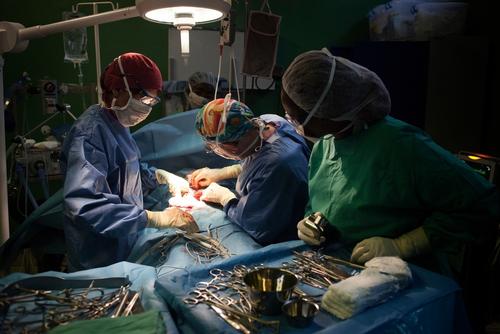Médecins Sans Frontières (MSF) treated 60 injured people at its trauma centre on Monday, 16 November 2015, after grenades exploded in several Bujumbura neighbourhoods.
“On Monday morning, we treated nearly 60 wounded people in the emergency room within a very short period of time,” explains MSF program manager Richard Veerman.
The MSF team launched a mass casualty plan in order to treat the rapid influx of wounded, triaging to treat the most serious cases first. “We opened a second operating room and performed five emergency surgeries in the hours that followed.”
MSF’s trauma centre includes 43 beds, an emergency room, two operating rooms and an intensive care unit. Its services are free and available to anyone who meets the admission criteria – which includes all those who have experienced a violent trauma. “We are committed to bringing quality medical care to people, regardless of race, religion or political affiliation,” Veerman notes.
Since the MSF centre opened in July, 630 wounded patients have obtained treatment; more than 390 of them required hospitalization.
MSF is one of the only international organizations treating the wounded and medical emergencies in the capital. Its activities in Burundi are financed solely by individual contributions. MSF does not accept funds from any government.
MSF has been working in Burundi for more than 20 years and intensified its activities in Bujumbura when pre-electoral tensions began to mount in May. It supported three health posts located near the sites where demonstrations occurred and thus facilitated access to free care for nearly 120 patients hospitalized in public facilities. MSF also trained the medical staff at the Prince Rwagasore hospital in Bujumbura to treat trauma victims and donated medicine and medical supplies.
Médecins Sans Frontières has been working in Burundi since 1993. In January 2015, the organization began to gradually transfer its program – whose goal is to reduce mortality associated with severe malaria in Kirundo – to the Ministry of Health. Nearly 2,700 patients have benefited from treatment for this disease.
In August 2015, MSF handed over responsibility to the Ministry of Health to manage the Urumuri center, which specializes in treating obstetric fistula, at the Gitega regional hospital. In 2014, the centre’s medical staff performed 364 operations.




